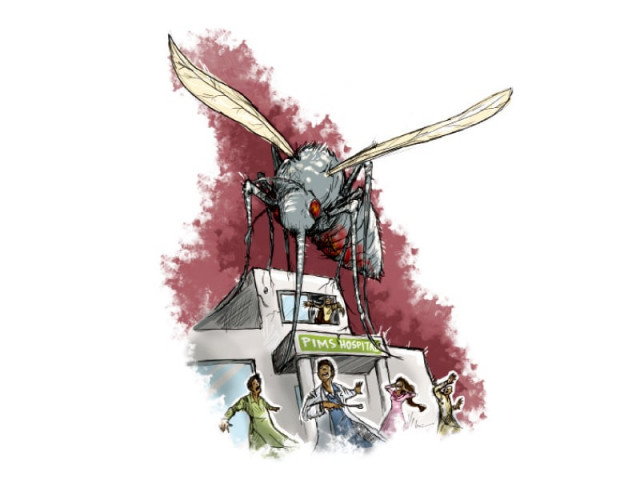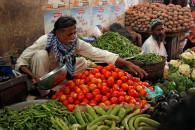First casualty: Dengue patient from Karachi dies at Holy Family Hospital
The deceased had been infected in Karachi; 67 local cases have been treated without incident.

The deceased had been infected in Karachi; 67 local cases have been treated without incident. GRAPHIC: CREATIVE COMMONS
A total of 67 suspected cases of dengue have been reported at Holy Family Hospital (HFH) this year, with one person who tested positive having “recently” died of the disease.
This was said by Dr Javed Hayat, head of the infectious diseases section at HFH, who added that the deceased was a man named Younas, 27, a resident of Karachi who got infected there. Dr Hayat said the victim’s family had told him that Younas was in critical condition and had been taken to a hospital in Karachi, but was sent back home as there was a shortage of ventilators at that hospital. The family then flew Younas to Rawalpindi and brought him to HFH with the hope that he might get access to a ventilator which could save his life.
“He was put on ventilator and it was confirmed that he had dengue fever. Every effort was made to save his life, but due to the condition he was already in, he failed to survive, Dr Hayat said. On the other hand, Dr Hayat said that all the suspected cases brought to the hospital were from Rawalpindi and its surrounding areas and all of them were discharged after treatment.

Talking to The Express Tribune, a senior doctor at HFH who wished not to be named said that the anti-dengue efforts of the health department cannot be successful until the city administration focuses on cleaning solid waste dumps across the city. “The best example of this is the heaps of garbage spread around Nullah Leh. Rainwater accumulates in disposed bottles, shopping bags, egg shells and empty boxes, which provide favorable breeding grounds for mosquitoes,” said the doctor. He urged the government to take preventive measures before the beginning of the monsoon season to control the spread of dengue fever and other diseases.
Talking to The Express Tribune, an official at the National Institute of Health (NIH) who was not authorised to talk to the media said on the condition of anonymity that the majority of blood samples received by the NIH to test for dengue fever were from Karachi. “Just like last year, there is little risk of a dengue fever outbreak in the twin cities and it is believed that the disease will mostly remain limited to Karachi,” said the official.
The official said that dengue is more prevalent in the rainy season, starting from June to November. “If the government takes early preventive measures before the beginning of the ‘dengue season’, it can prevent an outbreak,” said the official.
Rawalpindi District Health Officer Dr Khalid Randhawa was unavailable for comment.
Published in The Express Tribune, July 16th, 2013.



















COMMENTS
Comments are moderated and generally will be posted if they are on-topic and not abusive.
For more information, please see our Comments FAQ